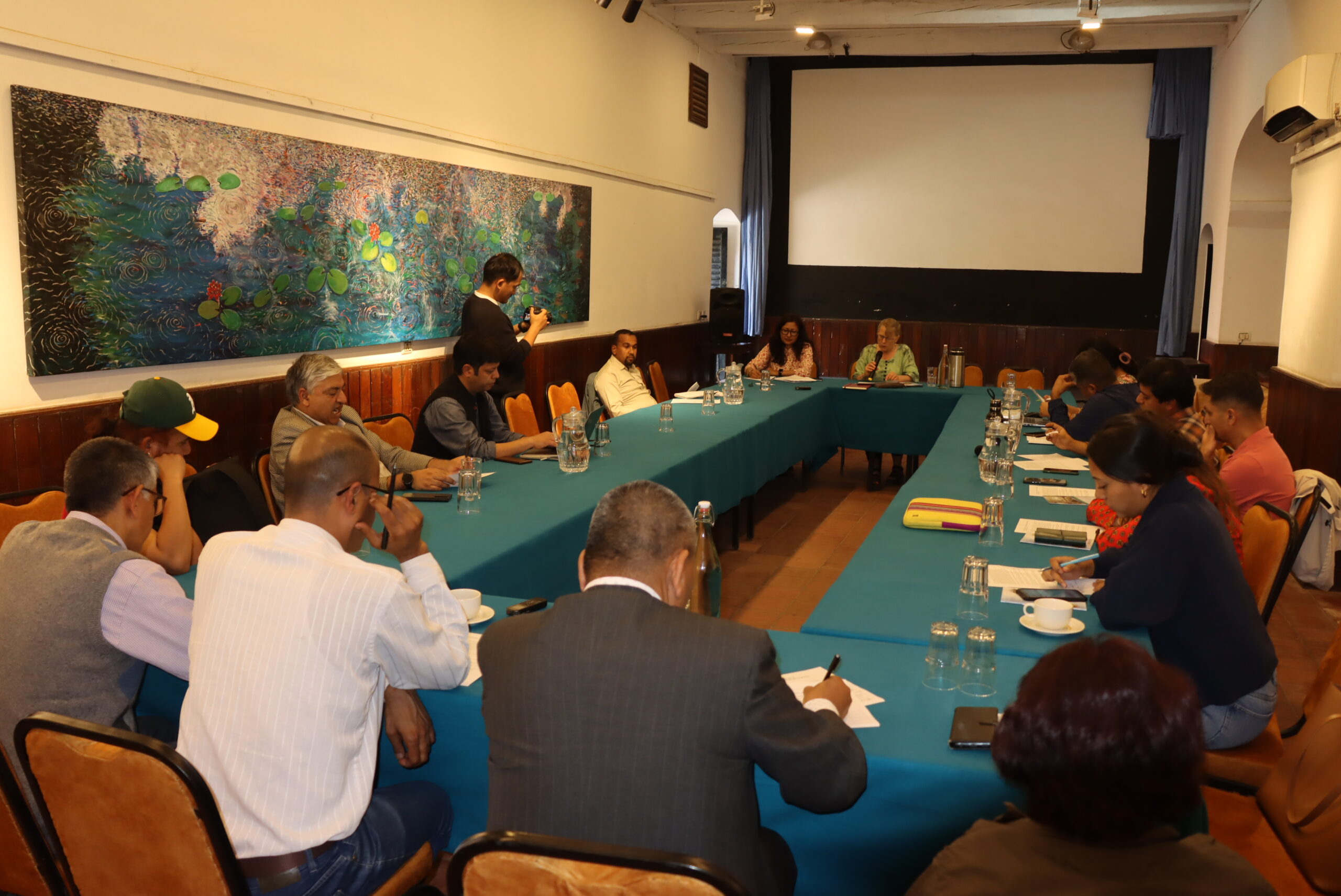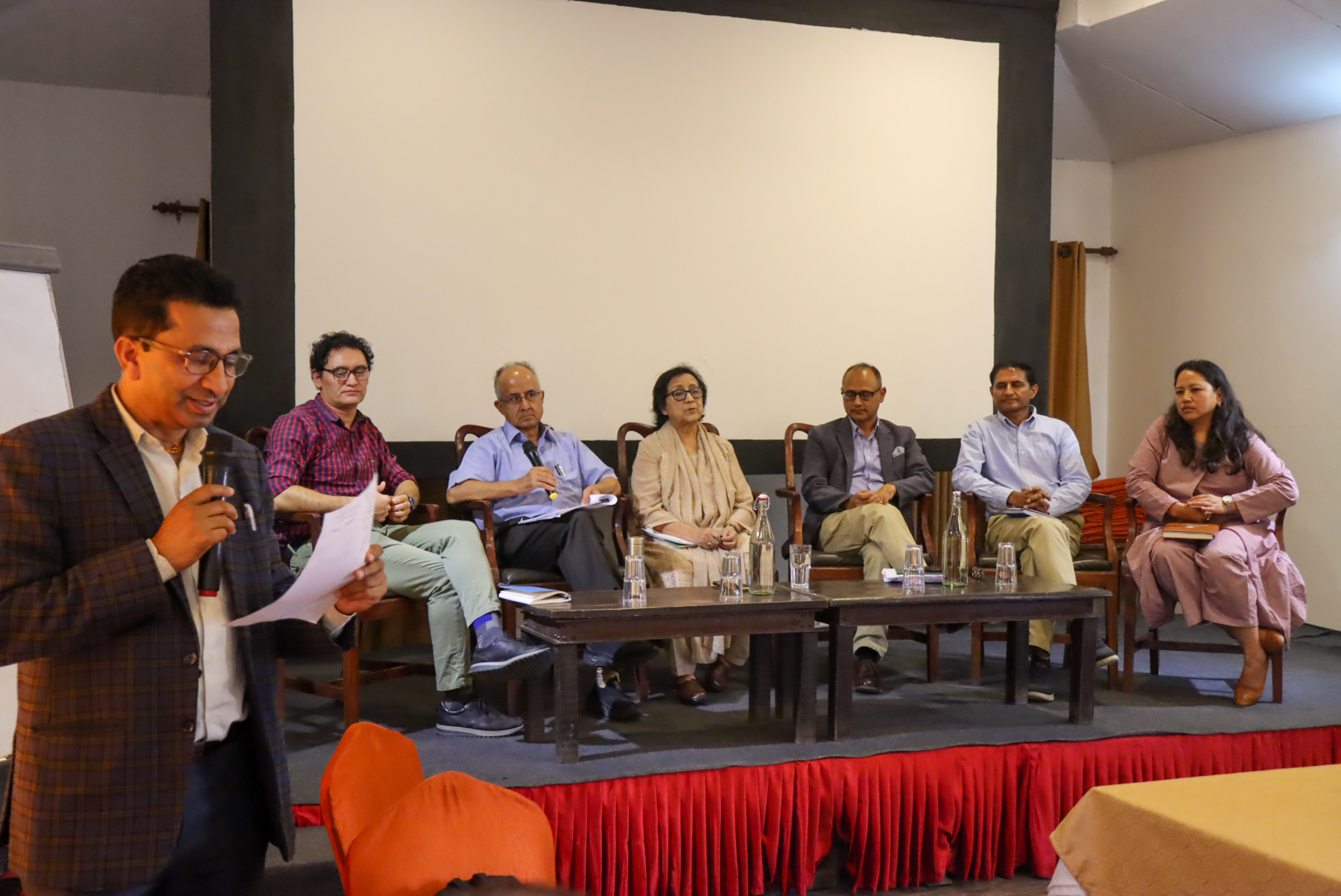SIAS and Dhulikhel Municipality organized a half-day research finding-sharing workshop on March 26, 2024 in Dhulikhel. The main objective of the event was to share the findings of the four-year-long research project “Institutional Networks and Self-organised Adaptation (INSA) that was conducted in eight different villages of four Palikas of Kavre and Ramechhap districts in Nepal.
The program started with a warm welcome from Mr. Kamal Devkota, PhD Researcher at KU Leuven, Belgium where he mentioned the objective of the workshop. He later presented the research scope, background, and major findings from the INSA research project. He explained the diversity of the threats experienced by the mid-hill farmers from Kavre and Ramechhap. He shared the experiences from the research that people’s aspirations in life are changing, they want their lives to be better than before, and therefore have very high expectations from the local government after the election. He talked about the threats that farmers experience, the nature of the threats, and how they are changing, and responses taken by the households themselves, and the kind of support that seek from the local government. He also talked about how people approach the local government and the kind of responses supported by the local government.
He further shared the research findings that people experienced three major kinds of threats:
- Daily stressors and worries
- Environmental and Natural threats
- Market and other unprecedented threats (COVID/Non-COVID)
There he talked about the pests and diseases that the farmers have experienced in their farming, immediate loss of jobs due to COVID, loans taken under different circumstances, its compounding interest, market-related threats for their produce, demand-supply gap, cases of multiple attempts for foreign employment despite of the failure or no any significant progress.
During the discussion session facilitated by Dr. Dil Khatri, Executive Director of SIAS, the participants expressed their concerns about the research findings and their importance. Mr. Ashok Byanju, the Mayor of Dhulikhel Municipality shared his plan to perform a microanalysis of the villages based on the findings of the research and work for the betterment of the situation. He also stressed collective lobbying with higher levels of government to improve the insurance policy (crop, health, livestock). Similarly, other representatives from different government and private bodies agreed on the need for good monitoring of the activities, making the loan process simple, facilitative, and convenient. Focus was given to removing the institutional hurdles for insurance.
The participants also discussed the need to improve subsistence-based farming, discourage the products from neighboring nations, and improve the technological capacity for increasing production.




